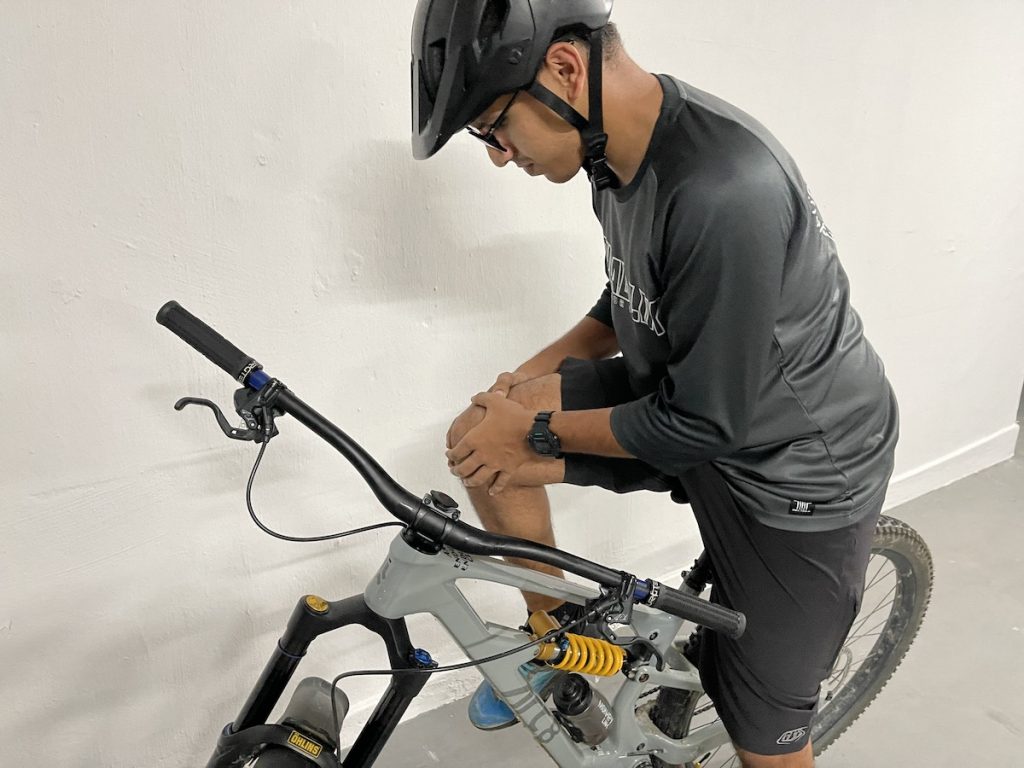HOW YOU SHOULD MANAGE YOUR INJURY FOR A MORE COMPLETE RECOVERY

If you’re beginning to look into physiotherapy for yourself or a loved one and find yourself with similar questions, read on. This article will start you off with five basic reasons it’s a good idea to seek physiotherapy as part of your healing process.

Recovering from an injury is an involved process that takes time, patience, and concentrated effort. Should you be injured at work, in transit, or at play, you should be ready to dedicate yourself wholeheartedly to this healing process to keep your injury from worsening. In some situations, your doctor may recommend that you participate in physiotherapy in addition to resting and taking any prescribed medication.
Physiotherapy refers broadly to medical procedures that use physical methods such as massage, heat treatment, and exercise to treat injuries or diseases. In the process of looking up a reputable physio clinic Singapore residents trust, people often have many questions about how such therapeutic methods facilitate recovery from injury. They may also wonder about what other benefits physiotherapy might afford the body—both in recovery and beyond.

Physiotherapy Allows You to Manage Pain Healthily
Pain management is one of the most stressful and frustrating aspects of dealing with any kind of injury. Most people opt to take medication such as anti-inflammatory drugs as their first recourse for managing pain. In the long run, however, continually buying these drugs can be quite costly. Many of them can also have potentially harmful side effects if not taken in careful moderation.
Physiotherapy offers a relatively cost-effective pain management alternative that will also help patients avoid becoming dependent on medication. Physiotherapists instead treat pain through manual massage, heat or ice therapies, and even electrical stimulation applied to the injured areas. These methods serve to improve blood circulation around these areas and help alleviate inflammation.

Physiotherapy Helps You Adjust While Recovering
The more severe your injury, the more it will impede your mobility and your ability to function normally in daily life. It’s part of your physiotherapist’s job to help you adapt to your current situation as you recover. They may, for instance, prescribe that you use mobility aids like crutches or canes, adjust these devices for you, and teach you how to use them optimally. They can also advise you on how else you might need to change your regular routine to account for your injury as you recover. These changes may include learning different ways to feed yourself, bathe, go up and down stairs, and see to other daily needs.

Physiotherapy Restores Mobility
Our natural instincts often tell us to protect injured body parts by moving them as little as possible and by placing only minimal amounts of stress on them. Too little movement, however, can actually cause injured muscles or joints to stiffen and hamper their mobility permanently. Your physiotherapist can help you safely exercise and otherwise stimulate these injured parts in order to build strength and encourage healthy blood circulation in the area. They might assist you with stretching exercises, for example, in the interest of gradually improving your mobility and range of motion. Later on, they may then teach you stretches you can do on your own as your recovery proceeds.
Physiotherapy Can Help Prevent Future Injuries
Before any treatments can begin, patients availing themselves of physiotherapy for injury often undergo rigorous physical examinations. These procedures identify vulnerable points on the patient’s body and enable physiotherapists to formulate systematic plans to strengthen those areas. Your therapist will thus be able to tell you not just how to treat your current injury, but also how to prevent further injury to that area. They may also be able to show you which other parts of your body are currently showing signs of skeletal or muscular weakness. Once you’ve identified these weak spots, they’ll advise you more on how to exercise them to keep them healthy and strong.

Physiotherapy Guides You Toward Optimal Functioning
As you recover from your injury, your physical therapist can also work with you to improve your posture and overall alignment. Good posture aligns your spine, which in turn reduces stress on your internal organs and allows them to function at their best. Muscles, bones, and joints also move more smoothly and function more efficiently on the whole when they are well-aligned. As you and your physiotherapist train your body continually over time, you’ll see that your flexibility, balance and strength will also gradually improve.
If you sustained your injury playing sports or performing repetitive motions, or if you just generally pursue an active lifestyle, it may also help to have your therapist assess the way you move. By observing your movements, they can identify any habits you have that may lead to strain or injury and recommend changes. Once you’ve learned to move more efficiently, you can apply these strategies to your exercise routine and other daily activities after you’ve recovered.
A nonfatal injury can still diminish your functionality and quality of life, so it’s important to be as hands-on about your healing as you can. As demonstrated above, there are many ways physiotherapy can help you recover from existing injuries and protect yourself from incurring future ones. So seek help proactively for any injury and commit yourself to the necessary treatment procedures—you’ll be in for a smooth and speedy recovery, guaranteed.
LIKE and FOLLOW us: Bikezilla Facebook Page • Bikezilla Bikers Singapore Group Page • BikezillaSG Instagram • Bikezilla STRAVA
Need a recommendation for post sports injury therapy? You may contact or visit Physio and Sole Singapore
Physiotherapy advice by Physio and Sole Singapore
Editorial photos by Physio and Sole Singapore and Bikezilla
Rider for additional photos: Singapore Mountain Biker Paul Singh
